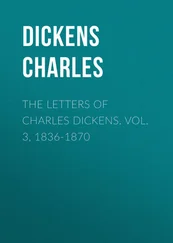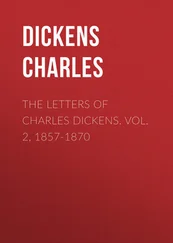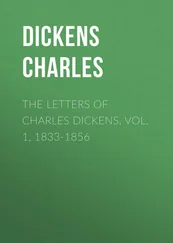William James - The Letters of William James, Vol. 2
Здесь есть возможность читать онлайн «William James - The Letters of William James, Vol. 2» — ознакомительный отрывок электронной книги совершенно бесплатно, а после прочтения отрывка купить полную версию. В некоторых случаях можно слушать аудио, скачать через торрент в формате fb2 и присутствует краткое содержание. Жанр: Биографии и Мемуары, Философия, foreign_edu, foreign_antique, на английском языке. Описание произведения, (предисловие) а так же отзывы посетителей доступны на портале библиотеки ЛибКат.
- Название:The Letters of William James, Vol. 2
- Автор:
- Жанр:
- Год:неизвестен
- ISBN:нет данных
- Рейтинг книги:3 / 5. Голосов: 1
-
Избранное:Добавить в избранное
- Отзывы:
-
Ваша оценка:
- 60
- 1
- 2
- 3
- 4
- 5
The Letters of William James, Vol. 2: краткое содержание, описание и аннотация
Предлагаем к чтению аннотацию, описание, краткое содержание или предисловие (зависит от того, что написал сам автор книги «The Letters of William James, Vol. 2»). Если вы не нашли необходимую информацию о книге — напишите в комментариях, мы постараемся отыскать её.
The Letters of William James, Vol. 2 — читать онлайн ознакомительный отрывок
Ниже представлен текст книги, разбитый по страницам. Система сохранения места последней прочитанной страницы, позволяет с удобством читать онлайн бесплатно книгу «The Letters of William James, Vol. 2», без необходимости каждый раз заново искать на чём Вы остановились. Поставьте закладку, и сможете в любой момент перейти на страницу, на которой закончили чтение.
Интервал:
Закладка:
"Of course this knowledge came to the foreground in his 'seminar.' In my second year I was with him in one of these for both terms, the first half-year studying the psychology of pleasure and pain, and the second, mental pathology. Here each of us undertook a special topic, the reading for which was suggested by him. The students were an interesting group, including Professor Santayana, then an instructor, Dr. Herbert Nichols, Messrs. Mezes (now President of the City College, New York), Pierce (late Professor at Smith College), Angell (Professor of Psychology at Chicago, and now President of the Carnegie Corporation), Bakewell (Professor at Yale), and Alfred Hodder (who became instructor at Bryn Mawr College, then abandoned academic life for literature and politics). In this seminar I was deeply impressed by his judicious and often judicial quality. His range of intellectual experience, his profound cultivation in literature, in science and in art (has there been in our generation a more cultivated man?), his absolutely unfettered and untrammeled mind, ready to do sympathetic justice to the most unaccredited, audacious, or despised hypotheses, yet always keeping his own sense of proportion and the balance of evidence—merely to know these qualities, as we sat about that council-board, was to receive, so far as we were capable of absorbing it, in a heightened sense of the good old adjective, 'liberal' education. Of all the services he did us in this seminar perhaps the greatest was his running commentary on the students' reports on such authors as Lombroso and Nordau, and all theories of degeneracy and morbid human types. His thought was that there is no sharp line to be drawn between 'healthy' and 'unhealthy' minds, that all have something of both. Once when we were returning from two insane asylums which he had arranged for the class to visit, and at one of which we had seen a dangerous, almost naked maniac, I remember his saying, 'President Eliot might not like to admit that there is no sharp line between himself and the men we have just seen, but it is true.' He would emphasize that people who had great nervous burdens to carry, hereditary perhaps, could order their lives fruitfully and perhaps derive some gain from their 'degenerate' sensitiveness, whatever it might be. The doctrine is set forth with regard to religion in an early chapter of his 'Varieties of Religious Experience,' but for us it was applied to life at large.
"In private conversation he had a mastery of words, a voice, a vigor, a freedom, a dignity, and therefore what one might call an authority, in which he stood quite alone. Yet brilliant man as he was, he never quite outgrew a perceptible shyness or diffidence in the lecture-room, which showed sometimes in a heightened color. Going to lecture in one of the last courses he ever gave at Harvard, he said to a colleague whom he met on the way, 'I have lectured so and so many years, and yet here am I on the way to my class in trepidation!'
"Professor Royce's style of exposition was continuous, even, unfailing, composed. Professor James was more conversational, varied, broken, at times struggling for expression—in spite of what has been mentioned as his mastery of words. This was natural, for the one was deeply and comfortably installed in a theory (to be sure a great theory), and the other was peering out in quest of something greater which he did not distinctly see. James's method gave us in the classroom more of his own exploration and aperçu . We felt his mind at work.
"Royce in lecturing sat immovable. James would rise with a peculiar suddenness and make bold and rapid strokes for a diagram on the black-board—I can remember his abstracted air as he wrestled with some idea, standing by his chair with one foot upon it, elbow on knee, hand to chin. A friend has described a scene at a little class that, in a still earlier year, met in James's own study. In the effort to illustrate he brought out a black-board. He stood it on a chair and in various other positions, but could not at once write upon it, hold it steady, and keep it in the class's vision. Entirely bent on what he was doing, his efforts resulted at last in his standing it on the floor while he lay down at full length, holding it with one hand, drawing with the other, and continuing the flow of his commentary. I can myself remember how, after one of his lectures on Pragmatism in the Horace Mann Auditorium in New York, being assailed with questions by people who came up to the edge of the platform, he ended by sitting on that edge himself, all in his frock-coat as he was, his feet hanging down, with his usual complete absorption in the subject, and the look of human and mellow consideration which distinguished him at such moments, meeting the thoughts of the inquirers, whose attention also was entirely riveted. If this suggests a lack of dignity, it misleads, for dignity never forsook him, such was the inherent strength of tone and bearing. In one respect these particular lectures (afterwards published as his book on Pragmatism) stand alone in my recollection. An audience may easily be large the first time, but if there is a change it usually falls away more or less on the subsequent occasions. These lectures were announced for one of the larger lecture-halls. This was so crowded before the lecture began, some not being able to gain admittance, that the audience had to be asked to move to the large 'auditorium' I have mentioned. But in it also the numbers grew, till on the last day it presented much the same appearance as the other hall on the first."
To Dickinson S. Miller
My dear Miller,—I have found the work of recommencing teaching unexpectedly formidable after our year of gentlemanly irresponsibility. I seem to have forgotten everything, especially psychology, and the subjects themselves have become so paltry and insignificant-seeming that each lecture has appeared a ghastly farce. Of late things are getting more real; but the experience brings startlingly near to one the wild desert of old-age which lies ahead, and makes me feel like impressing on all chicken-professors like you the paramount urgency of providing for the time when you'll be old fogies, by laying by from your very first year of service a fund on which you may be enabled to "retire" before you're sixty and incapable of any cognitive operation that wasn't ground into you twenty years before, or of any emotion save bewilderment and jealousy of the thinkers of the rising generation.
I am glad to hear that you have more writings on the stocks. I read your paper on "Truth and Error" with bewilderment and jealousy. Either it is Dr. Johnson redivivus striking the earth with his stick and saying, "Matter exists and there's an end on 't," or it is a new David Hume, reincarnated in your form, and so subtle in his simplicity that a decaying mind like mine fails to seize any of the deeper import of his words. The trouble is, I can't tell which it is. But with the help of God I will go at it again this winter, when I settle down to my final bout with Royce's theory, which must result in my either actively becoming a propagator thereof, or actively its enemy and destroyer. It is high time that this more decisive attitude were generated in me, and it ought to take place this winter.
I hardly see more of my colleagues this winter than I did last year. Each of us lies in his burrow, and we meet on the street. Münsterberg is going really splendidly and the Laboratory is a bower of delight. But I do not work there. Royce is in powerful condition.... Yours ever,
W. J.Although, in the next letter, James poked fun at reformed spelling, he was really in sympathy with the movement to which his correspondent was giving an outspoken support—as Mr. Holt of course understood. "Isn't it abominable"—Professor Palmer has quoted James as exclaiming—"that everybody is expected to spell the same way!" He lent his name to Mr. Carnegie's simplified spelling program, and used to wax honestly indignant when people opposed spelling reform with purely conservative arguments. He cared little about etymology, and saw clearly enough that mere accident and fashion have helped to determine orthography. But in his own writing he never put himself to great pains to reëducate his reflexes. He let his hand write through as often as thro' or thru , and only occasionally bethought him to write 'filosofy' and 'telefone.' When he published, the text of his books showed very few reforms.
Читать дальшеИнтервал:
Закладка:
Похожие книги на «The Letters of William James, Vol. 2»
Представляем Вашему вниманию похожие книги на «The Letters of William James, Vol. 2» списком для выбора. Мы отобрали схожую по названию и смыслу литературу в надежде предоставить читателям больше вариантов отыскать новые, интересные, ещё непрочитанные произведения.
Обсуждение, отзывы о книге «The Letters of William James, Vol. 2» и просто собственные мнения читателей. Оставьте ваши комментарии, напишите, что Вы думаете о произведении, его смысле или главных героях. Укажите что конкретно понравилось, а что нет, и почему Вы так считаете.












